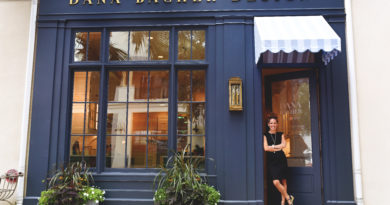Trey Nelson: Klassy Hip Hop
story by mary ellen thompson
photography by paul nurnberg
Trey Nelson is a young man with a vision, not only for himself, but also for the people in his community of Saint Helena Island, and his medium is music. Not gospel music, not soul music, not even really rap music, although the similarity is definitely there, but what Trey calls “Klassy Hip Hop.” The most notable departure from rap, Trey explains is, “I don’t curse, I don’t use that language so I can take my music anywhere – the library, church, wherever; that’s why I’m ‘klassy.’”
Tracing his musical heritage to his dad, Kevin Nelson, Trey remembers, “My daddy was from the Bronx, NY and when I told him I was making music he told me he knew all the people from there and he gave me their tapes to listen to. He raised me around music, he had an old stereo system that I still have, I remember the day he handed me a microphone.
“I had a laptop with a program for mixing music so I didn’t play outside or walk the road like the other kids; I just stayed inside with my music.” Another influence was church music; Trey was part of the youth choir, Angels of Harmony, at the Brick Baptist Church on St. Helena.
“Finesse’” is Trey’s other moniker. If you google him you will find: “Finesse’ is more than music. As hip-hop is a lifestyle and expression from downtrodden backgrounds, style and skill arises from a place arrived anew here.” (Artist Trove). “Finesse’ is a hip-hop artist from Saint Helena Island, SC. His music is introspective and beautiful. As artistic and raw as it can be, you get the truth when you listen to Finesse’.” (indieonthemove.com)
BL: Explain Finesse’ to me – the how and what of it.
TN: “Definition of style and skill, in hip-hop. No Souf Cak rapper is as klassy, in a way similar to my performance or presentation.”
One of Trey’s favorite venues these days is the St. Helena Library where he was instrumental in the formation of the media studio, and where he performs his event, “Spoken Word.”
BL: What is Spoken Word?
TN: “Poetry in the purest form. The Spoken Word is the words straight from the people, how they feel and what they want from life. The program that spurred a lot of creative energy in me was named LOUD. They had a program named Poetry and Pancakes. They did a version named Slam Poetry. I don’t categorize anything like that, name or what type of Poetry. Right now, it’s open and based off the community.”
BL: When is your next performance?
TN: “April 10, from 12-2PM, at the St. Helena Library; it’s a Spoken Word event, named Spoken Word in the Reading Garden. It’s good for the public to address their emotions in a public, comfortable setting. As my music of Finesse’ is thanks to poetry, I have to be the one to host it when the community asks.”
Trey comments that many people from St. Helena leave the island in search of bigger and better opportunities, and he was one of those. “I had planned to leave as soon as I finished school and I did, but I came right back. I was recording in a sound studio in Manhattan when I was asked to perform my first paid show back here at the Technical College of the Lowcountry. The youth of the island are important and they’re influenced by those who move away and then come back.”
BL: What was the performance, and why was it important?
TN: “The College Jam, hosted by PILAU. It was important because I got the call the day after graduation. Waking up from that night I just finished high school with a paid show, my first paid show was different. I didn’t even know what I was worth. So, going to NY was the start of learning what I was worth. They wanted me to stay, and I was doing that all out of my pocket. I knew I had to be back for that show, and I was thankful for that. It started me off to learn what I was worth, in music and business.”
An inspiration Trey remembers is his third grade teacher at Saint Helena Elementary School, Miss Christina Johnson, and her class in which the students read and recited poetry.
BL: “What do you specifically remember about that class as being inspirational for you in terms of your music?”
TN: “Memorization. We’d have to memorize and then recite the lines. Same thing when you write songs and go to record them.”
Trey also recalls,“People thought I was saying something beautiful when I was just saying what I was saying.”
When asked if she would share what she remembers about Trey and that class, Miss Johnson replied, “I would be glad to share. I was Trey’s third grade teacher. Every year, I invite all of my students to become storytellers. They would have to prepare by choosing an interesting book to share with the class, practice reading that book at home, and create an activity that corresponds to the book. The students would read to the others on Fridays. Trey chose Green Eggs and Ham by Dr. Seuss. I distinctly remember thinking, “Not Green Eggs and Ham again!” This was because so many of my students had previously chosen the book that I dreaded hearing it again. However, when Trey read that story, the whole class was mesmerized, including me. I don’t remember his activity, but his voice was unforgettable. The way that he told the story taught me a valuable lesson. Never underestimate the creative ability of someone even when he’s working with a text that has stood the test of time. What a genius he was at the age of eight!”
“southerNothings” is another component of Trey’s endeavors; he says, “Think: ‘…whisper sweet nothings into my ear…”’.
BL: What, exactly is southerNothings?
TN: “southerNothings is an artist development and research kompany. Found on twitter (@southerNothings), it’s one of those companies that works to make artistry a living. We analize an environment and an art’s revenues streams, looking at everything that may make money and may not make as much money as usually thought, develop the art and artist, and the artist or business makes investments into themselves. It gives the youth something to do, some tools. They need music direction. If they can learn how to use their voice, they could get work – for example, singing, doing voice overs.”
Trey’s community involvement is widespread. He’s a writer and contributor to “gullahconversations.com”, and is involved with the BlackButterfly Foundation.
BL: Tell us about the BlackButterfly Foundation.
TN: “One of those youth that needs it. I won’t go into how me and Angel Ryan met, but how we started is how we remain. I’m usually an all around person, you tell me to do something I do it. To the youth that are in Black Butterfly, I would say I’m an inspiration because I’m just like them.”
BL: What is the message you’re trying to convey with your music?
TN: “Uplifting spirits through the most extreme times and unlocking your mind to get through the fog that things give.”
BL: Do you have a local idol?
TN: “No.”
BL: Why do the youth of Saint Helena Island mean so much to you?
TN: “I’m one of them. I can’t go shining with all my gold and money and act like I’m better than them. I wouldn’t last out here that way, and I wouldn’t feel good about myself anyway.”
BL: What about all youth?
TN: “Well, we all got to look at different things. Youth ain’t that different wherever you go. Same things.”
BL: All Black youth?
TN: “Definitely in need of something positive to look at. We don’t get it at home.”
BL: How has the Gullah heritage affected you, and when did you become aware of it?
TN: “The vibes you feel, are very important. It helps me wade through the environments and situations I always find myself in. I became aware of it, seriously in 2016 to be honest. That’s when I really started to say and feel it all.”
BL: What do you think is most important for people to know about the Gullah culture? Do you have any advice for the young people here who, may like you, now have a new awareness of their culture?
TN: “Yes, I’m glad you asked this question. Gullah was the language used by our area slaves in the Lowkountry and the sea coasts to communicate with and against the master (at the same time) and still being true with themselves.
“It’s in everything where I go, and everything I do. I don’t like to sugarcoat things, don’t like things being sugarcoated with me. When I really started to delve into what it meant to be Gullah and being from the Gullah kulture, I had to be true to it and keep it alive with my modern way. It’s important for it to be known, to go through komplex situations and remaining true. The devil is around you same time as God, because they do work together. That’s apart of Gullah’s foundation. For the young people, I would say stick to it. It’s probably best for you to stick with what you now know, regardless of what you’re told unless it really makes sense with proof.”
BL: What is your long term goal and how to you hope to achieve it?
TN: “To have a happy home, and build my family as to be driven by God. I believe that only way I do that is by always having faith no matter what goes on.”
Keep your eyes open for this young man, listen to his Spoken Word if you can, and his music, and wish him the best in realizing his vision.




